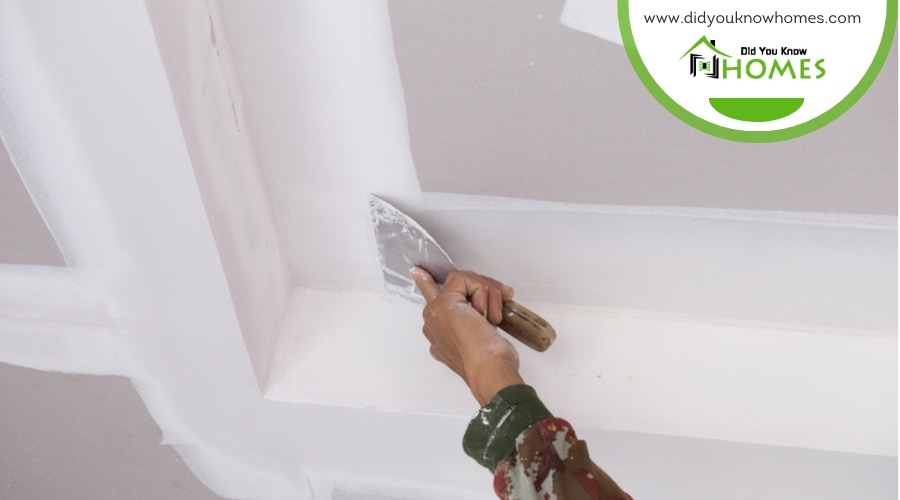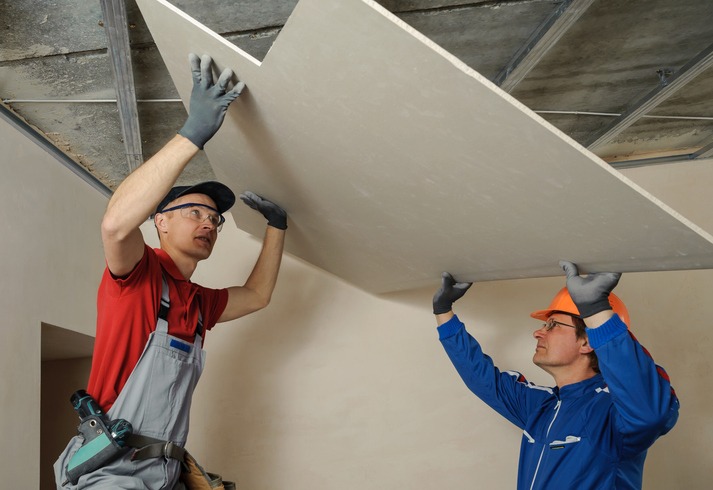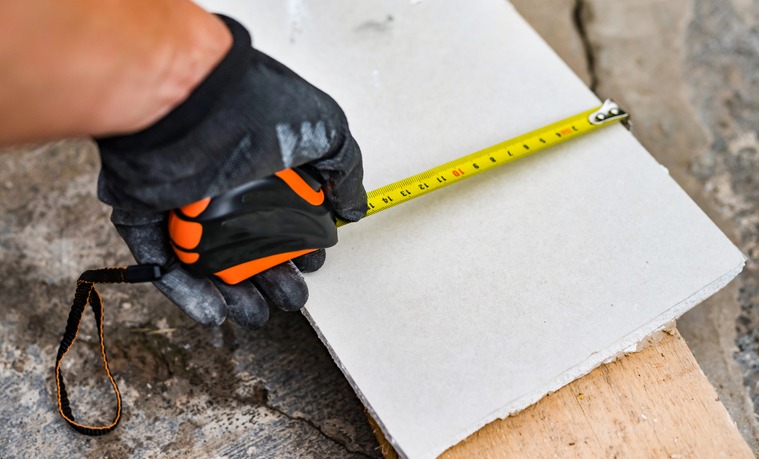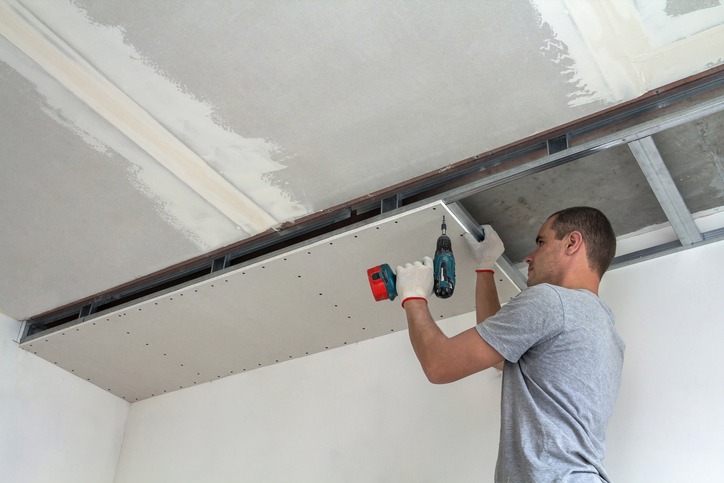You might be surprised to learn that the thickness of drywall for your ceiling does more than just finish the space aesthetically; it plays an important role in the structural integrity, sound insulation, and fire resistance of your home. While 5/8 inch is often seen as the standard for its strength, the specific needs of your project, such as joist spacing and whether you’re looking to enhance soundproofing or fire ratings, could lead you to think about other thicknesses. Choosing the right drywall thickness isn’t just a matter of preference but a decision that impacts the safety, functionality, and comfort of your living space. Let’s explore what factors you need to weigh in this decision.
Understanding Drywall Thickness
Choosing the right drywall thickness for your ceiling is important for both durability and safety. When you’re contemplating the construction or renovation of your home, the thickness of the drywall you select for your ceilings plays a pivotal role. The standard thickness for ceilings is 5/8 inch, which offers the necessary rigidity and fire resistance to meet most building codes. This thickness is especially recommended as it greatly reduces the risk of sagging over time, ensuring that your ceiling remains stable and secure.
However, if you’re working with a ceiling that requires a specific fire rating, Type C drywall might be necessary even at a 1/2 inch thickness. This special type of drywall is designed to meet certain fire resistance standards without compromising the integrity of your ceiling.
In addition, thicker drywall, such as the 5/8 inch variety, contributes to better sound insulation. This can dramatically improve the acoustics of a room, making it quieter and more peaceful. When selecting the thickness, you also need to take into account the joist spacing, blocking, and insulation. These factors can influence the overall performance of your ceiling, including its ability to prevent sagging and enhance soundproofing.
Pros and Cons of Thin Drywall
When you’re considering thin drywall for your project, you’re likely drawn to its cost efficiency and the ease of installation. These options don’t only save you money, but they’re also lighter and simpler to work with, especially in DIY scenarios. However, it’s important to weigh these benefits against the potential for increased damage risk and the possible need for extra support.
Cost Efficiency
Opting for thinner drywall, such as 1/4-inch or 3/8-inch, can offer significant cost savings and ease of installation for your ceiling projects. When considering drywall thickness for your ceiling, understanding the balance between cost efficiency and structural needs is important. Here’s a quick snapshot:
- Cost-effective: Thinner drywall is generally less expensive, saving you on upfront material costs.
- Lighter weight: Eases the handling process during installation.
- Suitable for standard joist spacing: Works well with common ceiling structures without needing modifications.
- May require additional support: For longer spans, extra bracing or support might be necessary.
- Balance: To weigh the cost benefits against the need for added support or bracing to maintain stability over large spans.
Installation Ease
While thin drywall offers easier handling and installation, it’s important to ponder its limitations in durability and sound insulation. Opting for thinner drywall, like 1/4-inch or 3/8-inch options, means you’re choosing lightweight drywall that’s more flexible. This flexibility is a boon for covering irregular surfaces or when you’re tackling DIY projects where weight restrictions are a concern. However, it’s crucial to note that this ease of installation might come at the cost of reduced impact resistance. Thinner drywall can make your job quicker and less strenuous, but for areas needing soundproofing, you may have to layer up or seek specialized treatments. In summary, while installation ease is a significant advantage, weigh it against your need for durability and sound insulation.
Benefits of Thick Drywall
Choosing thick drywall, specifically the 5/8 inch variety, greatly enhances your ceiling’s fire resistance, structural support, and sound insulation. When you’re contemplating the common standards for your ceiling installation, the benefits of opting for thick drywall become unmistakably clear. Not only does the 5/8 inch standard improve the overall durability of your structure, but it also steps up the game regarding fire resistance and acoustics. This makes it a robust choice for both residential and commercial spaces.
Here’s why upgrading to 5/8 inch thick drywall for your ceiling is a wise decision:
- Enhanced Fire Resistance: Offers a superior level of fire protection compared to thinner alternatives.
- Increased Structural Support: Adds rigidity and support, preventing sagging over time.
- Improved Sound Insulation: Thick drywall acts as a better barrier for sound, enhancing room acoustics.
- Better Durability: More resistant to wear and tear, ensuring your ceiling stands the test of time.
- Meets Type C Drywall Requirements: In areas where Type C drywall is necessary for fire rating, 5/8 inch thickness meets these specifications without the need for additional materials.
Choosing the Right Thickness
When selecting the ideal thickness for your drywall ceiling, it is crucial to factor in the specific needs of your space. The standard drywall thickness for ceilings is 5/8 inch, designed to offer proper support and rigidity. This thickness is key in preventing sagging over time, especially in areas with wider joist spacing. For areas where fire resistance is a priority, consider using Type C drywall if you’re leaning towards a 1/2 inch thickness. This specialized type of drywall provides enhanced fire resistance, adding an extra layer of safety to your space.
Upgrading your ceiling drywall to 5/8 inch thickness not only improves structural support but also increases durability. This thicker drywall is less prone to damage during installation and over its lifespan. Additionally, incorporating sound insulation with this thickness can greatly improve the acoustics in the room, making it an ideal choice for living spaces and bedrooms where sound quality matters.
Common Drywall Thicknesses
How do you decide which drywall thickness is best for your project, given the common options available? When it comes to ceilings, the thickness of the drywall you use can greatly impact the overall look, safety, and sound quality of the space. Here’s a quick guide to help you navigate through the common drywall thicknesses and their respective benefits:
- Standard 5/8 inch drywall: Ideal for ceilings due to its rigidity, improved fire rating, and acoustics enhancement.
- Type C drywall: Offers a 1/2 inch option with enhanced fire-resistant materials, suitable for specific building codes or requirements.
- Thicker drywall for fire rating: A thicker option may be necessary to meet safety standards and provide additional protection against fire.
- Increased rigidity with 5/8 inch: This thickness prevents sagging and adds structural integrity to ceiling installations.
- Proper installation techniques: Using blocking and reinforcement during installation ensures the longevity and durability of your ceiling, preventing issues like sagging over time.
Understanding the importance of drywall thickness, the requirements for your specific project, and the benefits of various options, such as Type C drywall and 5/8 inch sheets, will guide you in creating a safer, soundproof, and aesthetically pleasing ceiling.
Installation Tips and Tricks
To guarantee a successful ceiling drywall installation, it is vital to select the right thickness and adhere to specific installation techniques. The choice of drywall thickness plays a pivotal role in the overall stability and appearance of your ceiling. For best support and rigidity, consider using 5/8 inch thick drywall, especially if your ceiling has wider joist spacing. This thickness helps prevent sagging and adds to the structural integrity of your ceiling.
Here’s a quick guide to help you through the process:
| Feature | Recommendation |
|---|---|
| Drywall Thickness | 5/8 inch for better support and rigidity |
| Joist Spacing | Ensure proper spacing and blocking for secure installation |
| Reinforcement | Use screws and adhesive with 1/2 inch lightweight drywall |
For those opting for lightweight 1/2 inch drywall, don’t overlook the importance of reinforcement. Strategically placed screws and adhesive can significantly enhance stability. Additionally, installing insulation batts on blocks not only aids in reducing the weight on ceiling panels but also ensures a snug fit and compatibility with existing structures, including adjustments for pot lights. Remember, matching the drywall thickness with existing standards is vital for a seamless ceiling installation.
Conclusion
To sum up, when deciding on the thickness for your drywall ceiling, it is crucial to weigh the benefits and drawbacks. Thick drywall, especially the 5/8 inch standard, offers robust support and better sound insulation, making it ideal for areas with wider joist spacing. However, installation demands careful attention to guarantee durability. Remember, the right choice depends on your specific needs and structural requirements. Don’t hesitate to consult a professional for guidance tailored to your situation.





